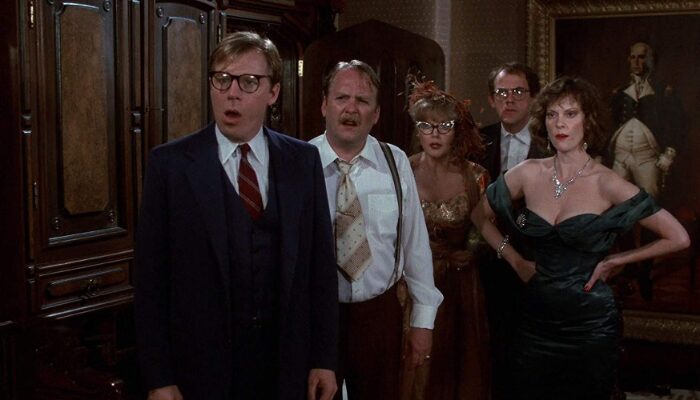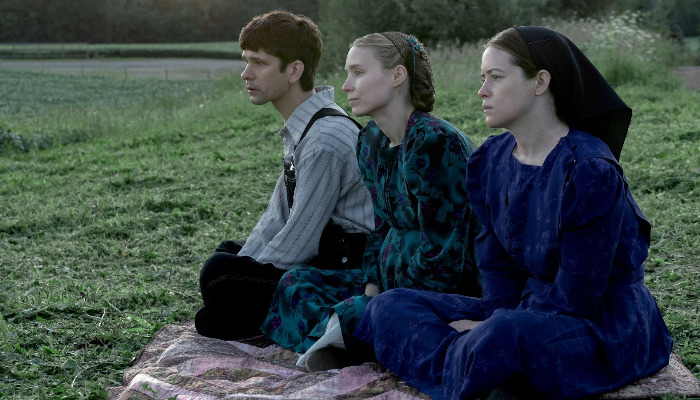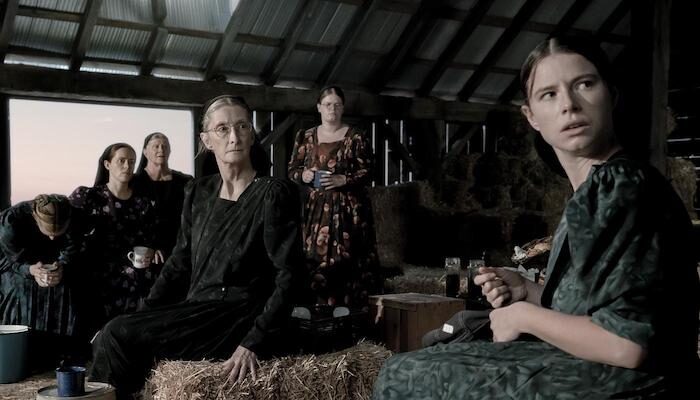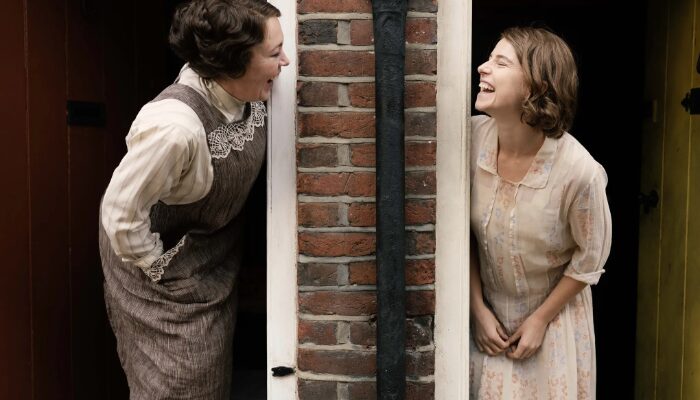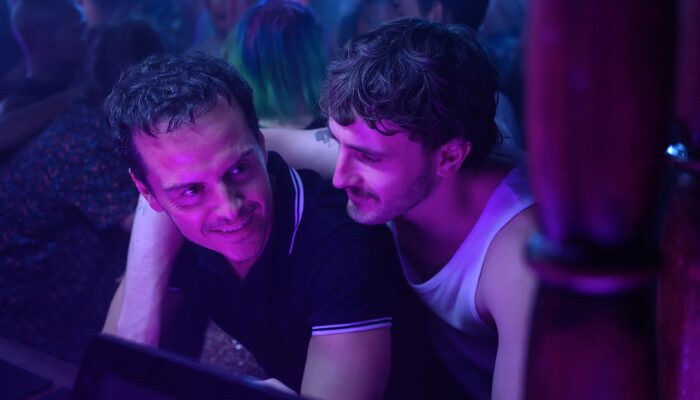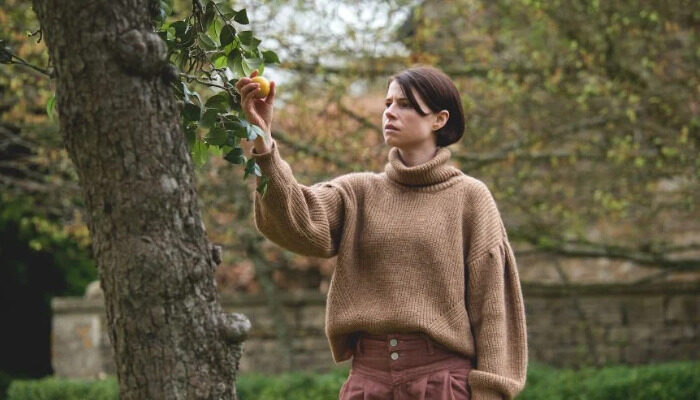Film Review: WOMEN TALKING (2022): Sarah Polley’s Film is an Artistic Triumph That Tackles Difficult Subject Matter
Women Talking Review
Women Talking (2022) Film Review, a movie directed by Sarah Polley, written by Miriam Toews and Sarah Polley and starring Rooney Mara, Claire Foy, Jessie Buckley, Ben Whishaw, Frances McDormand, Judith Ivey, Emily Mitchell, Kate Hallett, Liv McNeil, Sheila McCarthy, Michelle McLeod, Kira Guloien, Shayla Brown, Vivien Endicott Douglas, August Winter, Lochlan Ray Miller, Nathaniel McParland and Will Bowes.
Filmmaker Sarah Polley has crafted one of the most complex and compelling films of all-time with the groundbreaking drama, Women Talking. In a movie that commands attention with its provocative premise, Polley’s picture manages to become a thought-provoking journey of the human spirit where in order to triumph, sacrifices must be made for the greater good. Polley is to be credited for bringing one of this year’s very best films to fruition with a premise that is sure to be both controversial and captivating for viewers, simultaneously.
In a secluded religious town, several women of faith who have been sexually assaulted must come to terms with what is best for their future in regard to their own lives and the lives of their family, especially their unborn children. These innocent forthcoming lives come from rape but are seen as pure in the eyes of most, if not all, of the central women in the film.
Rooney Mara is the film’s central star. She plays Ona who a kindly male schoolteacher named August (Ben Whishaw) wouldn’t mind helping raise her soon-to-be-born child. Ona is afraid of the future but is a strongly conceived character. She is fierce, vulnerable and independent but needs to stand up for what is right. She rejects August’s proposal to help her, but she has strong feelings of admiration for him.
In a group of women who gather together in the picture, a decision must be made in order to stop the male attacks from persisting. These rapes have resulted in awkward, unjust and uncomfortable lives. Three choices are put on the table and the women of the town must vote. They can do nothing. They can stay and fight. Or they can leave. A vote is taken, and the latter two choices seem to be the most prevalent decisions that the women are leaning towards.
Jessie Buckley plays Mariche who is one of the most richly developed characters in the picture. Mariche can be very forceful in the messages she conveys to the other women in the picture. She seems to stand for making some kind of peaceful resolution in regard to the situation at hand but can also become quite angry, herself, especially towards other women’s views in her group and especially when she is given a black eye later in the movie. She is the voice of the audience at times as her views present both ways the situation in the film could potentially unfold.
Judith Ivey is great in her turn as one of the wise elders, Agata, who at one point in the movie tells her fellow ladies to shut their “pie holes.” Ivey has been around a long time and makes a terrific comeback with her superb work in this movie.
Ben Whishaw’s character, August, is asked advice on the safety of bringing young teenage boys with the women if they do plan to leave the town. In a speech about how teenage boys have lots of unfocused energy, it is revealed that these teenage boys could be dangerous unless they are educated the correct ways of treating other people, especially women. Whishaw is outstanding in his role in this picture and adds heartbreak and sophistication to the story line. The actor is able to display a wide range of emotions here.
Claire Foy turns in another remarkable performance within Polley’s film. Foy’s best scene in the picture is one of her more subtle ones. It comes when Foy’s character Salome tries to console August in the decision that is ultimately made in terms of August’s immediate future. When Salome finds out August has a gun which he is offering her for protection, it’s a tender, yet powerful moment in a film full of intensity.
The likely Best Supporting Actress nomination to come from Women Talking would be for Jessie Buckley. The talented actress’s raw frustrations and fierce vulnerability make this Buckley’s best screen work to date. She is a towering screen presence and in the scenes which she appears, there is no question she’s the most valuable player in the whole entire movie. Buckley can make the audience feel all her pain and passion and it’s a remarkable characterization by one of the most fascinating talents working today.
Frances McDormand also appears in the movie in a less showy role that demonstrates different interpretations of the viewpoints of the majority of the characters in this picture. McDormand is good but she must have known this wasn’t going to be her film when she accepted the part.
The situation Women Talking proposes is truly frightening. What if the powers that be weren’t there to protect innocent women from sexual abuse by the men in their community? What if there was no choice but to take a stand in order to achieve the common good? These characters in the movie are fearless in their determination to live a better life. The theme of this movie is protecting the innocence and right to a peaceful life for all. Especially children who are good regardless of the circumstances in which they are born into.
Polley takes the audience in her grip and doesn’t let the audience go for the entire running time of Women Talking. This is heart-wrenching, thought-provoking filmmaking and Polley, the director and co-writer of the script, must be credited accordingly. There is no time for settling for horrible circumstances for the women in Polley’s film. They must make a stand for better or worse. These are certainly women talking but they are also women who will, without a doubt, act on what they say they will.
As the picture reaches its powerful conclusion, Women Talking sugarcoats nothing. It’s a fiercely acted movie about taking a stand and doing what is necessary to live the best life possible. It takes big risks and succeeds in ways no other picture this year has in terms of being totally creative and making important points about the necessity for a positive quality of life for all. Polley’s movie will get under your skin and stay there for days. It’s a true triumph.
Rating: 9.5/10
Leave your thoughts on this Women Talking review and the film below in the comments section. Readers seeking to support this type of content can visit our Patreon Page and become one of FilmBook’s patrons. Readers seeking more film reviews can visit our Movie Review Page, our Movie Review Twitter Page, and our Movie Review Facebook Page. Want up-to-the-minute notifications? FilmBook staff members publish articles by Email, Twitter, Facebook, Instagram, Tumblr, Pinterest, and Flipboard.
Related Articles
FilmBook's Newsletter
Subscribe to FilmBook’s Daily Newsletter for the latest news!






